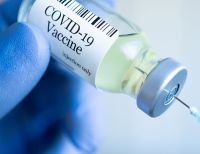30 April 2024
 When COVID-19 caused significant economic disruptions, thousands of people around the world experienced sudden shocks to their financial situation through reduced earnings or job losses.
When COVID-19 caused significant economic disruptions, thousands of people around the world experienced sudden shocks to their financial situation through reduced earnings or job losses.
Now economic researchers at the University of South Australia have examined the mental health effects on people who experienced immediate or expected financial setbacks during the height of the pandemic.
Data gathered from China, Japan and South Korea during the early phases of the pandemic revealed that the severe economic shocks induced by COVID-19 caused significant effects to people’s mental health including anxiety, sleeping troubles, boredom and loneliness.
UniSA’s Associate Professor of Economics Tony Cavoli says the anticipation of future income loss had a more profound impact on people’s mental wellbeing compared to the actual decreases in their income.
“Our research shows that mental health issues are more likely to occur due to anticipated income losses rather than actual losses. It was also interesting to find that although women are generally more likely to experience mental health problems, in many instances in our study we found that men were more likely to experience anxiety than women in response to either actual or expected losses in their income,” he says.
“There are a couple of reasons as to why this might be the case. Firstly, in societies that are perhaps seen as more traditional in terms of household and familial structures, it is possible that males feel greater societal pressure to remain employed. Secondly, those industries for which there was a higher likelihood of experiencing income reductions were more likely to have greater participation by males.”
The initial impacts of COVID-19 lockdowns led to decreased demand, a reduction in hours worked and significant job losses. The Australian Bureau of Statistics predicted the pandemic caused a $47 billion hit to the country’s economy.
Assoc Prof Cavoli says his study presents an important insight into people’s anxieties arising from economic turbulence and uncertainties.
“We have an insight into how people dealt with income shocks during stressful times, and this is a really important opportunity for future policy implications, particularly around the design of government support and other interventions,” he says.
“Responses from governments, for example, early in times of crisis may help individuals manage possibility anxieties arising from economic uncertainties."
For more information:
Akbar Zamanzadeh, Tony Cavoli, Matina Ghasemi, Ladan Rokni, The effect of actual and expected income shocks on mental wellbeing: Evidence from three East Asian countries during COVID-19, Economics & Human Biology, Volume 53, 2024, 101378, ISSN 1570-677X, https://doi.org/10.1016/j.ehb.2024.101378.
END.
………………………………………………………
Media contact: Melissa Keogh, Communications Officer, UniSA Media M: +61 403 659 154 E: [email protected]
Researcher contact: Associate Professor Tony Cavoli, UniSA, E: [email protected]
















